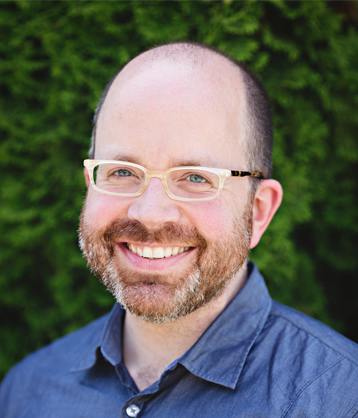 In addition to his work as a diocesan consultant and trainer, Stephen is a psychotherapist in private practice in north Seattle, specializing in couples therapy. He holds an MA in Marriage and Family Therapy from Pacific Lutheran University. He holds a certificate from the Church Development Institute, and has been a congregational-development trainer and consultant since 2010. An ordained vocational deacon, Stephen is currently serving St. Paul’s Episcopal Church, Seattle. Stephen and his husband Andrew live in north Seattle with their two dogs, Stella and Hoku ala.
In addition to his work as a diocesan consultant and trainer, Stephen is a psychotherapist in private practice in north Seattle, specializing in couples therapy. He holds an MA in Marriage and Family Therapy from Pacific Lutheran University. He holds a certificate from the Church Development Institute, and has been a congregational-development trainer and consultant since 2010. An ordained vocational deacon, Stephen is currently serving St. Paul’s Episcopal Church, Seattle. Stephen and his husband Andrew live in north Seattle with their two dogs, Stella and Hoku ala.
What do you love most about being a congregational consultant?
Recently I was working with a vestry on their vision and plans for the summer, when their priest would be on sabbatical. We spent most of the day learning about how congregations work, and how our Episcopal tradition can help us notice what’s missing in the congregation’s life, in its usual way of doing things. Near the end of our session, it all came together into three clear goals for the sabbatical time, and the group felt very excited and motivated. I love facilitating work that comes together at the end, while deepening the bonds of friendship, leaving everyone feeling eager to take the next steps in their life together.
Where do you feel your strengths are as a consultant?
One of the tools I use is the Myers-Briggs Typology Indicator, for which I am a certified practitioner. Using the MBTI lens, I have a preference for Feeling in my decision-making. This means that when I’m part of a group decision-making process, I like to focus on relationships and values. That’s where I like to start, and when the decision is made, that’s where I look for success or failure: did we act according to our organization’s values and mission? Did we act in a way that strengthened our working relationships, and deepened our commitment to one another? I’m good at focusing on these questions. But as a practitioner of MBTI, I know we can’t just do what we prefer, so I’ve built consulting designs that include those with Thinking preferences in their decision-making—the folks who are great at analysis, facing tough facts, and approaching an issue logically. We all do everything, as they say in MBTI, not just what we prefer. As a consultant, I bring my preferences and my appreciation of those who are different.
I think people learn and work better when the process they’re using includes a focus on group dynamics, relationships, and organizational culture. I’m good at noticing those things, and integrating a discussion of them into our work together. For example, I was working with a congregation on a painful conflict that had erupted in their church, a conflict that left them feeling hopeless and frustrated about whether they would be able to resolve it. As we worked together, I sensed that they had a long history of healthy group dynamics, and a shared value of reconciliation and camaraderie. When we designed the activity that resolved the conflict, I kept that in mind and gave the congregation lots of room to do what they do best: talk and listen to one another with a process that includes prayer, silence, and social connection around a meal. Consultants need to be flexible, and we need to notice and integrate a particular congregation’s strengths and needs in the intervention design.
What gets you excited to work with a particular congregation, or what are you looking for in a consulting job?
I love a good-humored, excited group of leaders. I love congregations that are aware of both their healthy traits and their difficulties, and are ready and willing to move their system into a healthier place. In one sense, and this might sound silly at first, I love working with people who actually believe in God: they actually trust that God will be there for them, that they are being assisted by the Holy Spirit, and so they don’t have to panic or give in to their feelings of frustration. They harbor a belief that no matter what happens, it’s going to be okay, God is here with us, and we just need to do our part to make the process healthy and productive.